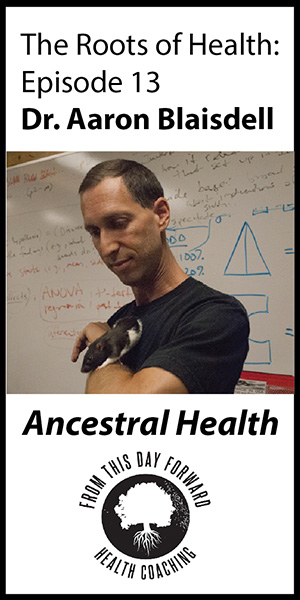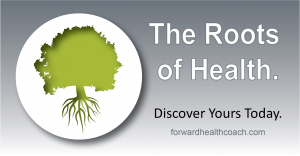 Click here to go right to the show in iTunes or on WebTalkRadio.net.
Click here to go right to the show in iTunes or on WebTalkRadio.net.
In Part 1 of Meredith’s interview with Dr. Aaron Blaisdell, professor in Learning & Behavior and Behavioral Neuroscience in the UCLA Psychology Department and founding member of the Ancestral Health Society they introduce the topic of Ancestral Health, what it is, how a diet may in fact influence motivation, how you should develop your own Ancestral Health approach, and some key first steps for shifting toward this perspective. Go on back and listen to that show if you haven’t heard it yet.
This week, Meredith continues her interview with Dr. Aaron Blaisdell. It’s a tough topic to nail down – because this perspective can be applied to all aspects of human health, and indeed, all aspects of you life.
In Part 2 of the interview, Dr. Blaisdell and Meredith chat about industrial foods, (check out How it’s Made: Canola Oil vs. this guy who makes butter at home), anecdotal evidence vs. scientific evidence, how ancestral health ‘aggregators’ are creating awareness about this topic, what it means to be a ‘gracious host’, the do no harm principle as it relates to any health intervention. They also review a list of ailments that can be healed by adopting an ancestral approach (from their own experience).
They also discuss Francis Pottenger and his epigenetics research in the early 20th century. Pottenger experimented with cats, feeding one group raw milk and raw meats, while others received less nutritious and far less natural diets. He made observations about the health of each group after multiple generations on these diets, respectively. He found that fertility was compromised within 2-3 generations in the cats who were fed unnatural diets, and that ultimately, the health of those cats could be re-established by switching back to a nutritious, natural diet.
Pottenger’s study is a study in ancestral health. By forcing a disconnect between the cats and their native diet, he was able to observe a major shift in their health, which they then passed on to subsequent generations. It’s an important lesson for the human species to learn from.
In closing, Meredith offers a visualization exercise to help you determine where you can begin to make a shift toward an ancestral health approach.
You can learn more about the Ancestral Health Society here.
Dr. Aaron Blaisdell’s Bio:
After receiving his BA and MA in Biological Anthropology (at SUNY Stony Brook and Kent State University, respectively), Dr. Blaisdell realized that animal cognition was even more interesting than dead humans. So he trekked on over to SUNY Binghamton for his Ph.D. in Experimental Psychology with Dr. Ralph Miller, where he studied learning, memory, and temporal cognition in the rat. This was followed by a brief stint as an NRSA Postdoctoral Fellow with Dr. Robert Cook, an expert on Avian Visual Cognition at Tufts University, where he learned how pigeons perceive and think about the world. In 2001, Dr. Blaisdell emigrated to the climatological and cultural paradise of sunny LA where he has remained ever since. Dr. Blaisdell is a Professor in Learning & Behavior and Behavioral Neuroscience in the UCLA Psychology Department. He presides over the Comparative Cognition Lab, studying cognitive processes in rats, pigeons, hermit crabs, and humans.
A second interest of Dr. Blaisdell’s is in how human ancestry and evolution can inform us about health and well being in the modern world. He is currently studying the interaction between diet and cognition. He is a founding member and Past President of the Ancestral Health Society, Past President of the International Society for Comparative Psychology, an Editor-in-Chief of the Journal of Evolution and Health, and a member of the Brain Research Institute, the Integrative Center for Learning & Memory, and the Evolutionary Medicine program all at UCLA.
You can subscribe to The Roots of Health at WebTalkRadio.net and also on iTunes.


